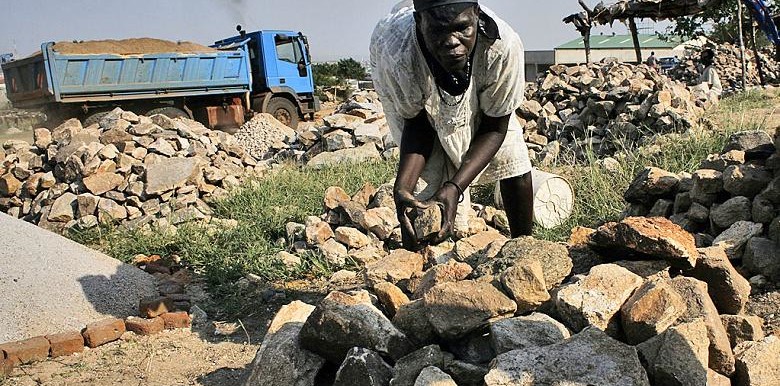Rock breakers who work at the foot of the Jebel Kujur in Juba say they have fewer customers these days even as prices of goods and food rise in the city.
Aggregates such as sand and crushed stone are materials used in construction.
Joseph Wani Sule, who has worked at Jebel for three years, says the number of customers buying sand and gravel in Juba has reduced, affecting their business.
“I was in Khartoum and I have come to South Sudan but have not got work hence I started extracting sand and gravel here and more lorries could come and take sand and gravel. This make us help our children get food and go to school. But when the problem of dollar started it spoiled our business and no people are coming to buy our sand and gravel,’’ he said
Wani explained that lorries come less frequently than before.
“Before this crisis 15 or more Lorries can come to carry either sand or stones but now sometimes nothing. I have seven children. I used to give them one pound or two pounds to go to school but now I must give them each five pounds daily,” he added, referring to the declining value of the pound.
He said poor unemployed parents are struggling to feed their children through hard work and they spend restless nights thinking of what next for the family.
Regina Wani explained that she was living in Malakal and when the crisis started she move to Juba and started working at the mountain site. She said her daughter completed secondary school and wanted to join university but due to the crisis her daughter remained at home.
“I need help if this gravel cannot bring money for me to send my daughter to school. My daughter passed very well and I really need her to achieve her dream,” she added.
Regina called on South Sudanese women to take any work to raise their children, some of whom lost their fathers in the ongoing conflict. She said she lost contact with her partner who was a generator operator at Upper Nile University at the outset of the war in Malakal in 2013.




